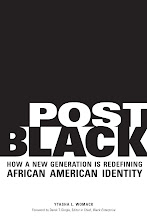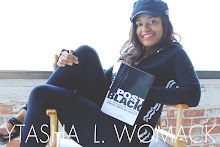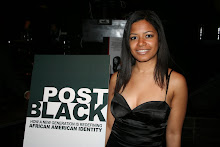
Marcus Samuelsson is one of the most sought after chefs in the nation with both award winning cookbooks and highly praised restaurants spotting the country. Samuelsson says he was surprised at how little America knew about African food, and it was one of the reasons he released the premiere cookbook Soul of A New Cuisine. His latest cookbook The New American Table explores ethnic food in the U.S and was released this month.
Born in Ethiopia, he was raised by adoptive parents in Sweden, where he acquired a passion for cooking from his maternal grandmother. Samuelsson studied at the Culinary Institute in Gothemburg where he grew up. He apprenticed in Austria and Switzerland before coming to the U.S at age 21 to apprentice at Aquavit Restaurant in New York City. At age 24 he became Aquivit's executive chef and was the youngest ever to receive a 3 Star Review from the New York Times.
Samuelsson's culinary achievements are endless. He was named best chef by the James Beard Foundation. He's launched several upscale restaurants including the Japanese influenced Riingo in NYC and the Affinia Hotel's C House in Chicago. Plus, he has his own line of Marcus cookware. However, Samuelsson hopes to encourage more people of color to pursue the culinary arts.
“Black people were cooking and serving forever before it was called fine dining and the restaurant business,” he told NV Magazine. “There are a lot of us, fine chefs, fine wine makers. It's a very tough effort to get recognized. You recognize me, but I represent a lot of people who are people of color who work in this field who are colleagues of mine.”
YLW: When you think Post Black, what comes to mind?
MS: Post Black. Barack, Michelle, black punk, the none obvious, the creative people. People who are doing it on many different levels in platforms who are not obvious. I can tell you of so many blacks who are in underrepresented fields, making major moves, doing it. The engineer, the computer whiz. Or you, being a black female film director is very post black.
YLW: Is it difficult to balance your identities as an African, a Swede and an American?
MS: As an African immigrant I think about it a lot. If you come to my house, I make Ethiopian food with American ingredients. I can make a Swedish dish for breakfast. But that's what makes me American. In any other country, take Sweden for example, I have to be Swedish to live there. Here the fact that it's a very open country, it's a simple country to be accepted in. That's why I love being here.
YLW: Why did you come to the U.S?
MS: I wanted to be here because of the diversity. There are more people of color, more ethnicity . . . blacks, Asians, Jews. I wanted to be in a diverse environment. Also, the journey that black people in America have and the Civil Rights Movement inspires me.
I'm a product of the Civil Rights Movement, although I wasn't born here, I know I'm a product of that. I always knew I had the skills and the talents but it's hard to do if you don't have the platform of people who came before you. The journey of black people in this country provided that platform. There's no way that I could do what I do without it.
I'm a product of the Civil Rights Movement, although I wasn't born here, I know I'm a product of that. I always knew I had the skills and the talents but it's hard to do if you don't have the platform of people who came before you. The journey of black people in this country provided that platform. There's no way that I could do what I do without it.
YLW: Did you have to adjust to African American culture?
MS: African American culture is one of the most powerful cultures in the world. I knew about it when I was 7. I knew about it through Stevie (Wonder), Michael (Jackson), through the Civil Rights Movement. People all over the world are studying what we're doing through Barack, movies, the military. As a Black Swede I knew about Black America through the music. I don't know if African Americans get enough credit for the incredible culture that it spreads across the world. Now we don't know so much about other cultures. I didn't have to do much adjusting, though. It was easier for me because I knew so much about it. Of course there are holiday differences, but we're all one.
YLW: I recently saw a very emotional interview with an accomplished African American chef who read about you when he was an inmate, and it opened his eyes to the possibility that a black chef could cook more than soul food.
MS: I know who you're talking about. In fact, I know him very well. I think it's important that we are diverse that I'm out there and that there are other black chefs out there. As a creative black person, for people of color all over the world it's important to inspire others. We've been in cooking all our lives, now it's time for us to be in fine dining.
YLW: Why aren't there more African American chefs and restaurant owners in fine dining?
MS: Black people cooked a lot in this country. We've been in the service industry. So when people were able to send their kids to college, they sent them to white collar jobs. Cooking wasn't at the top of the list.
YLW: True.
MS: Fine dining wasn't at the top of the list. It's up to us to inspire people. There are African Americans with their own wineries. We have Derrick Oliver, one of the best beer makers. I know a black person who wants to open a sushi restaurant. There are African American innovators in the food industry. We have to have our own awards, just as we have in other fields. We're not there yet. That's why it's important for me to have my line of cookware.
YLW: Tell me about your new cookbook The New American Table?
MS: The New American Table talks about the diversity of American food. We as a diverse nation have done something that other countries have not. I wanted to talk about our journey as Americans and immigrants and people of color. Every family has stories and cookbooks. I wanted to show the diversity of American food: Chinese American, Jamaican American, American Southern. American food will always move forward because this is a diverse nation.
YLW: I never thought about the diversity of our food. Does it make American food unique?
MS: All countries have great food, but the fact that you can have Vietnamese, Thai, Southern on any block of any corner that makes us an incredible nation.



Fantastic interview. Thank you. I love Samuelsson's perspective on diversity as it relates to American identity and food.
ReplyDelete